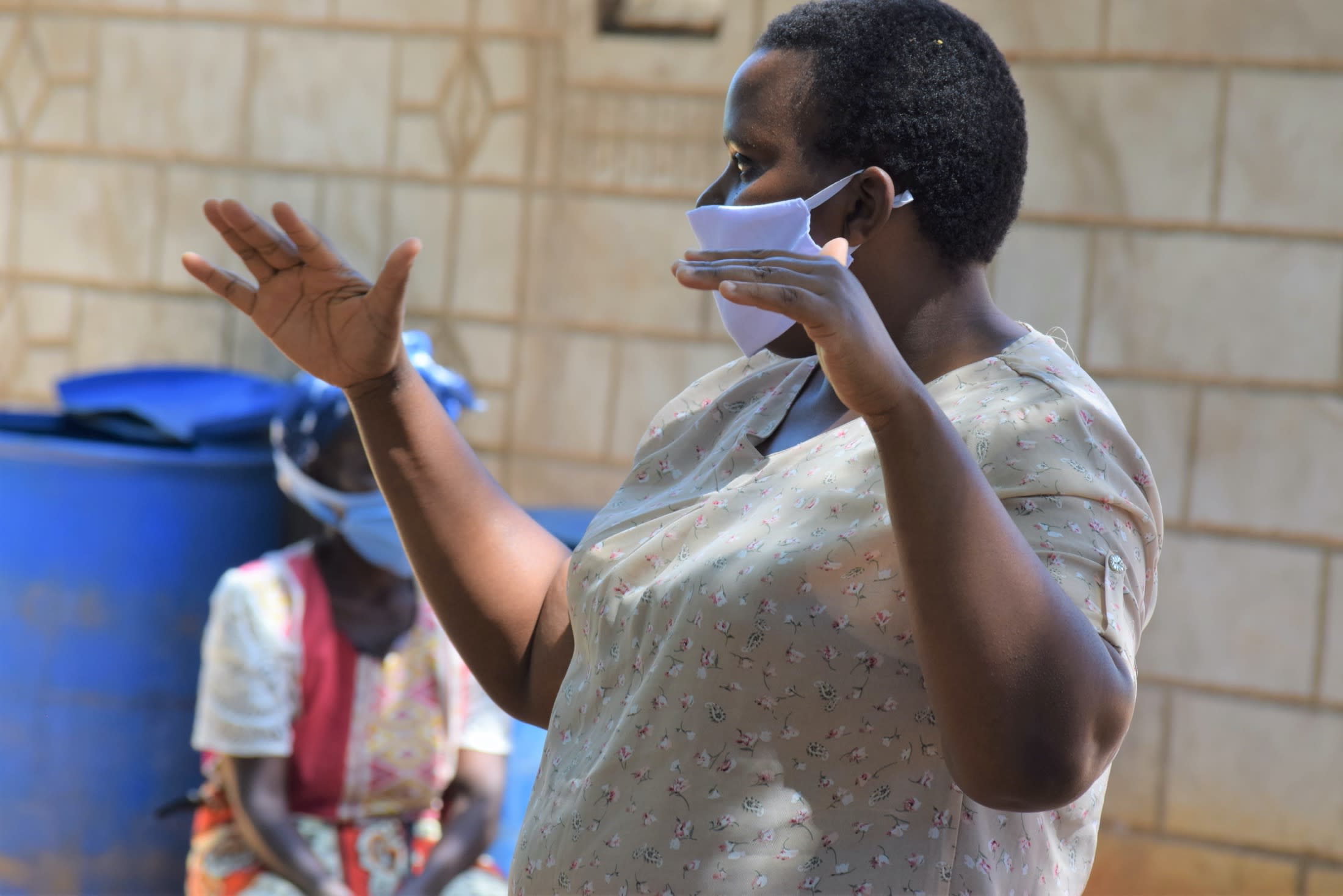The more than 1300 people in Mukuku Community depends on open river scoop holes found along Thwake river to meet their daily water needs.
Available water is from open river scoop holes which have exposed the community members to potential health dangers such as diseases contractions. They are open water sources which are shared by human beings, livestock and wild animals.
"Our community suffers from a lack of reliable clean water source, we are always forced to fetch water from insecure sources which expose us to potential health risks because the water is open to many possible contaminants," said Kyalo Ndeto.
Community members are always required to cover relatively long distances to and from the water source which makes the hunt for water a tedious affair for women and children who are naturally involved in the activity. Further, queues at the channel and the long waiting time devastates those involved in the process.
"It takes more time thus depriving people of valuable time which could be utilized in development-oriented activities," said Mr. Ndeto.
Mukuku community is found on a silent rural setting with a relatively flat terrain which favors motorcycle transport and use of bicycles as a means of transport. The area is characterized by low vegetation cover made of predominantly indigenous tree species which are naturally growing at the locality.
The majority of the people living in this area practice small scale agriculture for family upkeep and sale of surplus. Locals grow maize, peas, green grams and are recently involved in the growing of fruit trees such as mangoes and oranges. Their close proximity to Thwake rive has led to a good number of community members engaging in irrigation farming at times of the year when water is available.
What we can do:
Our main entry point is the Mukuku Self-Help Group, which is comprised of 69 farming households that are working together to address water and food scarcity in their region. These members will be our hands and feet in both constructing water projects and spreading the message of good hygiene and sanitation to everyone.
Hand-Dug Well
This particular hand-dug well is being built adjacent to this group’s ongoing sand dam project (click here to see), which will supply clean drinking water once it rains. We have supplied the group with the tools needed for excavation. With the guidance of our artisans and mechanics, the excavated well will be cased, sealed with a well pad, and then finished with a new AfriDev pump.
Excavation takes a month or more on average, depending on the nature of the rock beneath. Construction of the well lining and installation of the pump takes 12 days maximum. The well will be lined with a concrete wall including perforations so that once it rains, water will filter in from the sand dam.
This well will be located in Mukuku Village, and will bring clean water closer to families having to walk long distances for their water.
Training
We will hold hygiene and sanitation training sessions with Mukuku self-help group, which are also open to non-members. These will teach about important hygiene practices and daily habits to establish in the community at the personal and household levels. Taking good care of self and environment will make for a healthy community.
The majority of community members have latrines, a kitchen and clotheslines which presents a good gesture for a new community group. Improvements are needed in areas such as the regular cleaning of the latrines, implementation of handwashing facilities, and digging of garbage pits within the homesteads.
In relation to this, the community needs improvement on compound hygiene, effective water treatment methods, handwashing training, soap making lessons and knowledge of disease transmission routes. The members of this group seem to have little knowledge on hygiene and sanitation. This also exposes them to risks of contracting diseases such as cholera, typhoid, diarrhea and stomachaches.

 Protected Dug Well
Protected Dug Well
 Rehabilitation Project
Rehabilitation Project





































